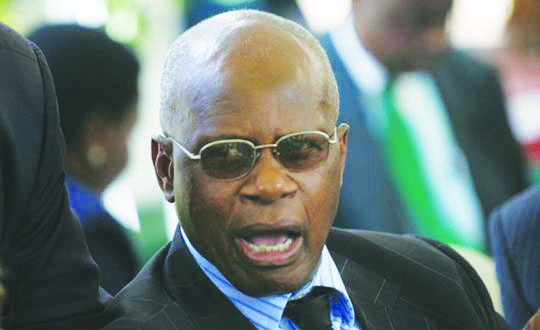By Wellington Gadzikwa
Over the past weeks debates have been raging on whether or not it is desirable for the government to mend its relations with the International Monetary Fund (IMF).

The drive to mend these relations has been seen as an about turn by the country after dumping the Bretton Woods institution some years back due to its predominantly genocidal policies that have plunged most nations that implemented their reform measures in the late 1970’s up to the 1990’s in endemic poverty.
I am one of those who feel that having relations with the IMF and accepting them to monitor and dictate the path to economic reform is like committing suicide as the wounds of what these multilateral institutions inflicted on the ordinary people have not yet healed.
Bretton Woods institutions and the structural adjustment programmes (Saps) they implemented in Zimbabwe have killed many lives, exacerbated and entrenched a vicious cycle of impoverishment and dependency.
The reform policies are much more than the deadly Ebola virus.
To make the situation worse, IMF and World Bank officials did admit that when they implemented the Saps in Zimbabwe, they were experimenting and that if the experiment did not work in Zimbabwe it would not work anywhere in Africa.
The results of these measures have condemned people to destitution and death — they destroyed industries through the call for liberalisation of trade among other key attributes of the so-called Washington Consensus.
Perhaps policymakers forget too easily when confronted with situations that seem gigantic.
Which economy has developed to the level of the second world industrialising countries like China, Singapore, Korea or to some extent South Africa with the help of the Bretton Woods institutions’ backed reforms? What has been the effect of austerity measures on the very same people that leaders of nations and governments want to uplift?
Sometimes it is wise to do some reading around this area before accepting simplistic explanations which are not backed by empirical evidence.
One sure thing that has emerged from the IMF is that when they insist on being paid back what poor countries owe to them as a condition for giving loans in itself, tells even a dumpsite scavenger that whatever they are saying they do not mean well.
These institutions are serving their ascribed role of being the global collectors of debt owed to shareholders of the bank and other multilateral finance institutions.
If the Bretton Woods institutions refuse to give credit to any nation, it becomes the benchmark for all other lenders to follow suit, their intentions become crystal clear.
All countries that have never been fully integrated into the Bretton Woods institutions have managed to grow their economies and improve the welfare of their own people much better than celebrated “democracies” cited as examples by such institutions.
Zimbabwe has an excellent chance to prove “itself on its own” and has the opportunity to improve its economy without being integrated into this relationship which it opted out because of its irrelevance to its desires and the interests of its people.
The implementation of these reform measures saw a lot of workers being laid off and becoming desperate, a situation which led to discontentment, resentment and led to strong anti-government feelings because the people looked to the state for answers to all their problems.
The introduction of cost recovery measures in health and education caused a lot of hardships as many people could not afford to pay after being retrenched — the only solution was to protest in the form of false democratisation drive with the hope for a better life.
If during the 1990’s a group of western-educated scholars convinced a revolutionary government to accept this deadly concoction from IMF and World Bank, should the same mistake be repeated expecting different results?
If so what is the meaning of the word “experience.”






